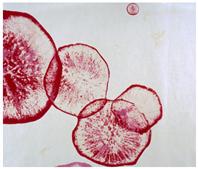I found Nick's blog reporting the call for better services for cancer "Survivors", and the difficulties faced by CLL patients in this respect, incredibly interesting. The responses indicate a real need for further work in this respect, and that is exactly what I'm hoping to achieve with my research.
The two hundred or so people who have offered their insights, and/or access to their postings will help to make this into the largest project to date exploring CLL support and knowledge exchange on line. There is a questionnaire option for those not wishing to offer up their postings. I've had 135 responses already from the global CLL community online, and was just about to close it to begin data analysis. However, having seen this thread, I'm going to keep it open for another month to give more people a chance to contribute. At the moment, the US and Canadian communities are responsible for the majority of the responses, so some more UK representation would be good if anyone can spare half an hour or so.
The link for the questionnaire is surveymonkey.com/s/inourblood
There is also a separate link for agreeing to have selected examples of your postings included in the work surveymonkey.com/s/inourblo...
You can do one without the other, or both according to your preferences.
This is a three/four year project, but I'm hitting the half way mark now, with a mini viva at the end of the month to confirm my PhD route - after that, data analysis, writing up, and publication over the next eighteen months. I'm getting very positive feedback on this from my supervisors, the professorial team at the University, and the broader community when I have presented it at conferences, so this will have some impact for us all on completion...
Here's an excerpt from the literature review so you can get a flavor of where I'm going with it:
"Currently we live with and have to accommodate a disease which is at once incurable... yet treatable, but with diminishing returns on those treatments as the disease progresses. In that sense, the liminal nature of the wellness/illness space that the disease produces is fairly unique among cancers, in both the watch and wait phase prior to treatment, and the temporary periods of remission following treatment. This is supported by Shanafelt et al’s (2007) observations that this group of patients not only recorded lower emotional well-being scores in relation to the general population, as may reasonably be expected, but also produced figures dramatically lower people living with other types of cancer (Shanafelt, T. Et al, 2007: 255).
Ziebland, Pettit, and Evans acknowledge the difficulties faced particularly by patients prior to treatment in their small scale qualitative project exploring the accounts of 12 CLL patients in the watch and wait phase of their disease, and their implications for clinical management. Referring to the disease as “incurable, invisible, and inconclusive”, the authors note that patients reported a lack of information about the disease and its potential impact on their future. The difficulty of living with the uncertainty of the disease was compounded for some by its relative “invisibility” to the outside world, producing ambivalence about whether and who to disclose diagnosis to. Check-ups with the consultant or GP were reported as sometimes “cursory” in their nature, and the need to adapt lifestyles to accommodate progressive symptoms prior to treatment being necessary produced a sense of helplessness. In short, the authors conclude that CLL patients in the watch and wait phase displayed similar levels of anxiety, depression, and reduced quality of life to their counterparts undergoing active treatment. These negative psychological impacts were related to “perceptions of the illness state, doctor-patient communication, and work pressure” (Ziebland, Pettit, and Evans, 2011: 1). Among the recommendations of this important paper were suggestions for specialists to acknowledge the psychological impacts of CLL, to actively listen to patients’ concerns, and to address their needs for information.
It seems clear from the limited research to date that more work remains to be done in opening a meaningful dialogue about the impacts of living with the disease between CLL patients and their clinicians. Further research into the ways in which this patient group negotiates the uncertainties and information deficit they face on a larger scale is needed to effectively underpin such a dialogue. Health related quality of life studies (HRQL) are useful ways of measuring the key anxieties and problems faced by patient groups, but I propose that multi-site ethnographic studies of online interactions, practices and discourses of specific patient groups, such as this one, may provide effective alternatives to mapping the autonomous and collective responses to managing the key issues faced by patients.
As suggested in the introduction, this group has a particularly active online presence. The chronic progressive nature of the disease potentially gives people more time to deeply research their condition and potential treatments, and to set up and maintain long-term online associations in support groups than those facing the immediate need for clinical intervention associated with more acute conditions..."
I've written 30,000 words to date - just another 50,000 to go. I have plenty more to say, and know that you all do too...
I'll keep posting updates of the work as it unfolds, so that people know their efforts have been a worthwhile investment...
Hope everyone is doing okay? I'm slightly swollen of neck and face again, but hat seems to be par for the course these days, and I'm feeling alright in general.
A happy spring break to all - finally, the sun has put in an appearance in Cornwall...
Jules
(p.s - any problems with the links, let me know)
surveymonkey.com/s/inourblood (questionnaire)
surveymonkey.com/s/inourblo... (consent)
